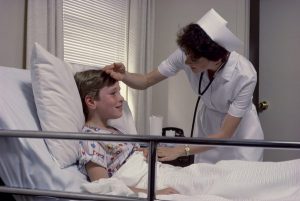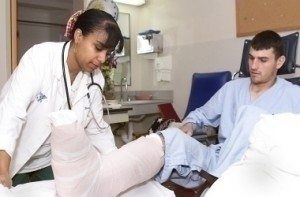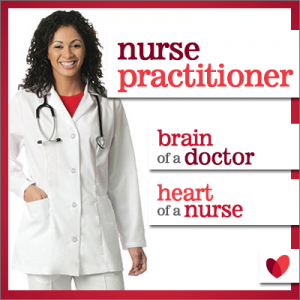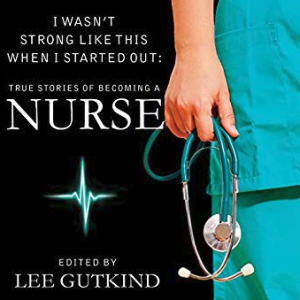5 Highest Paying Nursing Specialties
August 24, 2019 by Rn2b
Filed under Nurse Salary Information, Types of Nurses
 When you initially decided to become a nurse, you would possibly have thought of nursing as a general job title in a very high-paying field. As you undergo school of nursing, you should notice nurses will choose between a spread of specialties, from midwifery to teaching.
When you initially decided to become a nurse, you would possibly have thought of nursing as a general job title in a very high-paying field. As you undergo school of nursing, you should notice nurses will choose between a spread of specialties, from midwifery to teaching.
There area unit several specialization choices, each with distinctive advantages, which is why nursing as a profession appeals to such a large type of individuals.
Popular, high-paying nurse specialties are:
- Certified RN anesthesiologist
 A CRNA prescribes and administers anesthesia to patients throughout medical procedures. To become a CRNA, you would like a master’s or doctoral degree and registered nurse certification. CRNAs represent half the anesthesia suppliers within the U.S.
A CRNA prescribes and administers anesthesia to patients throughout medical procedures. To become a CRNA, you would like a master’s or doctoral degree and registered nurse certification. CRNAs represent half the anesthesia suppliers within the U.S.
Median Annual Salary: $143,739
- Psychological state registered nurse
 Also called a psychiatrically registered nurse, P-MPs area unit chargeable for prescribing medications and assessing and diagnosis patients. They specialize in patients that suffer from mental state problems like depression, schizophrenic disorder, and emotional disorder. To pursue this field, you want to have your RN license and a minimum of a bachelor’s degree in nursing.
Also called a psychiatrically registered nurse, P-MPs area unit chargeable for prescribing medications and assessing and diagnosis patients. They specialize in patients that suffer from mental state problems like depression, schizophrenic disorder, and emotional disorder. To pursue this field, you want to have your RN license and a minimum of a bachelor’s degree in nursing.
Median Annual Salary: $101,602
- Pediatric Nurse:

Pediatric nurses primarily work with kids, as well as infants, elementary-aged children, adolescents, and teenagers. pediatric nurses facilitate great growth and development. Some aid settings might settle for candidates with an associate academic degree, however, almost like a bachelor’s.
Median Annual Salary: $58,914
- Orthopedic Nurse:
 Orthopedic nurses facilitate patients who area unit laid low with fractured bones, arthritis, osteoporosis, joint injuries, or alternative musculoskeletal problems. They assist doctors and patients before, during, and when medical science surgeries. To become an associate orthopedic nurse, you would like an associate RN license associated either an associate or a bachelor’s degree.
Orthopedic nurses facilitate patients who area unit laid low with fractured bones, arthritis, osteoporosis, joint injuries, or alternative musculoskeletal problems. They assist doctors and patients before, during, and when medical science surgeries. To become an associate orthopedic nurse, you would like an associate RN license associated either an associate or a bachelor’s degree.
Median Annual Salary: $101,034
- Nurse practitioner:
 Family Nurse Practitioners (FNPs) get to form long-lived connections with their patients and see them through each smart and difficult times. FNPs typically work collaboratively with medical care physicians, which implies they’re a friendly and acquainted face in their communities thanks to shutting, continual work with patients.
Family Nurse Practitioners (FNPs) get to form long-lived connections with their patients and see them through each smart and difficult times. FNPs typically work collaboratively with medical care physicians, which implies they’re a friendly and acquainted face in their communities thanks to shutting, continual work with patients.
In some states, nurse practitioners will operate their family practices and even impose controlled substances, giving them a high level of autonomy. where you reside, a typical visit with associate FNP would possibly embrace consultation, assessments, and going over prescriptions. Nurses of all specialties area unit presently terribly asked for, however nurse practitioners area unit probably to search out themselves in associate particularly friendly job market thanks to their high demand.
Median Annual Salary: $95,350
True Stories of Becoming a Nurse
April 14, 2019 by Rn2b
Filed under Becoming a Nurse, Nursing Books
 When it comes to becoming a nurse, there is a lot that we cannot possibly expect. There is no amount of preparation that anyone can realistically do in order to be prepared for all situations once you become a nurse.
When it comes to becoming a nurse, there is a lot that we cannot possibly expect. There is no amount of preparation that anyone can realistically do in order to be prepared for all situations once you become a nurse.
However, hearing the stories of others can often help us better understand how to deal with these situations and how to adjust as needed in the future.
In I Wasn’t Strong Like This When I Started Out: True Stories of Becoming a Nurse, edited by Lee Gutkind, you can read a collection of true narratives that reflect the diversity of nurses and what they encountered when they started off in the nursing fields. Some of these stories are about first births, or first deaths, and some are about first “sticks.”
 This is a beautiful collection as it demonstrates the voices of nurses at different points of their careers and how they find that their life and career is changed by their encounters in nursing. Each story shows the courage, the difficult, and the beauty of the nursing career.
This is a beautiful collection as it demonstrates the voices of nurses at different points of their careers and how they find that their life and career is changed by their encounters in nursing. Each story shows the courage, the difficult, and the beauty of the nursing career.
- Paperback: 320 pages
- Publisher: In Fact Books; 1 edition (April 9, 2013)
- ISBN-10: 1937163121
- ISBN-13: 978-1937163129
CRNA Pocket Resource
December 15, 2011 by Rn2b
Filed under Certified Registered Nurse Anesthetist (CRNA), Nursing Books, Testing and Exam Help
When you’re about to go into the operating room, be interviewed for a job, or are just looking for a refresher, this handy book, Pocket Anesthesia by Richard D. Urman, MD.; Jesse M Ehrenfeld, MD.; and Richard D. Urman is the way to go.
For a Certified Registered Nurse Anesthetist (CRNA), this pocket reference guide is awesome. It covers every major patient management issue someone will find in clinical anesthesia, all in one concsice, pocket-size and ring-bound book. With 36 chapters and 302 pages, this thing is surprisingly small and contains a lot of information.
It’s a great resource any CRNA could use.
Pocket Anesthesia
Site Price: $46.79Amazon review:
I kept on seeing students, residents, CRNAs and even attendings in the department using this book to prepare for cases and for the boards. So I ordered a copy for myself and am extremely pleased. While the book looks small it is complete and comprehensive, including both basic and advanced topics. The six-ring binder fits nicely in the pocket of my lab coat or I can choose to just carry a few of the loose-leaf pages around with me. There is a LOT of information crammed into this little book. It’s generously illustrated with many relevant lists, tables, and algorithms, which condenses a ton of information. A very, very useful resource in deed, I recommend it for everyone studying or practicing Anesthesiology.

